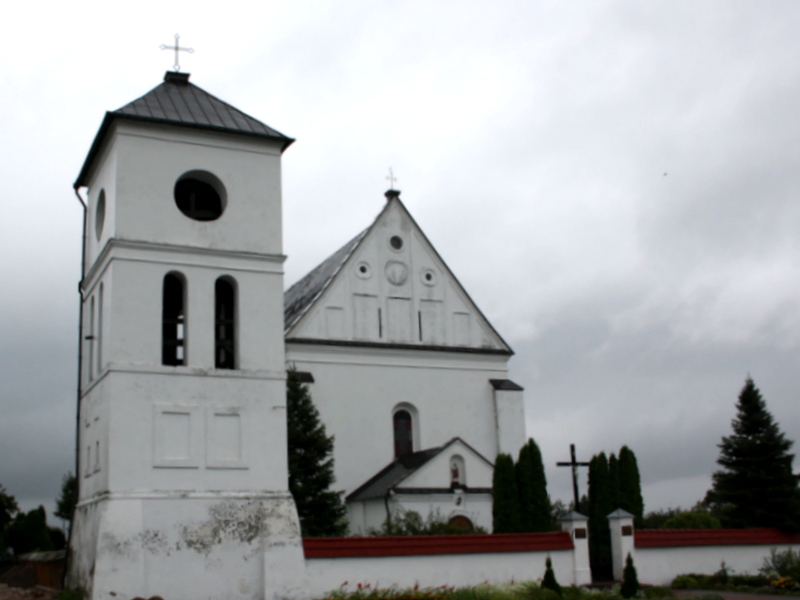History
Originally, Chernavchitsy belonged to the Iljinič family, and in 1566 it was transferred to Mikołaj Radziwiłł “the Orphan.” In 1583, he initiated the construction of the church, which served both religious and defensive purposes. After the suppression of the 1863 uprising, the church was handed over to the Orthodox Church and returned to Catholics in 1918. During the Soviet period, the church was closed, but by the late 20th century, it was restored and reopened for worship.
Architecture
The church in Chernavchitsy is a single-nave, dome-less structure with an elongated presbytery and a transept-like extension, giving the building the shape of a Latin cross. Massive walls with buttresses, narrow elongated windows, and a high gabled roof reflect Gothic traits, while the cylindrical vault with stucco ribs and decorative façade elements show Renaissance influence. A distinctive feature is the round tower on the southern façade with a spiral staircase, reminiscent of fortified architecture.
Cultural and Historical Significance
The Holy Trinity Church in Chernavchitsy is one of the few surviving fortified churches in Belarus. It served not only as a place of worship but also as a refuge for locals in troubled times. Inside, three wooden polychrome sculptures from the 18th century have been preserved: Saint Dominic in the altar, Saint Anthony, and Saint Martin in the façade niches. The interior also features a copy of the Our Lady of the Gate of Dawn icon and a 17th-century cross.
Excursions and Visiting
The church is located in the center of the agro-town of Chernavchitsy, 18 km from Brest, and is a popular site for religious and cultural tourism. It can be visited as part of tours from Brest and other nearby cities. You can also book an individual or corporate guided tour that includes the Holy Trinity Church in Chernavchitsy, along with other attractions of the Brest District.
